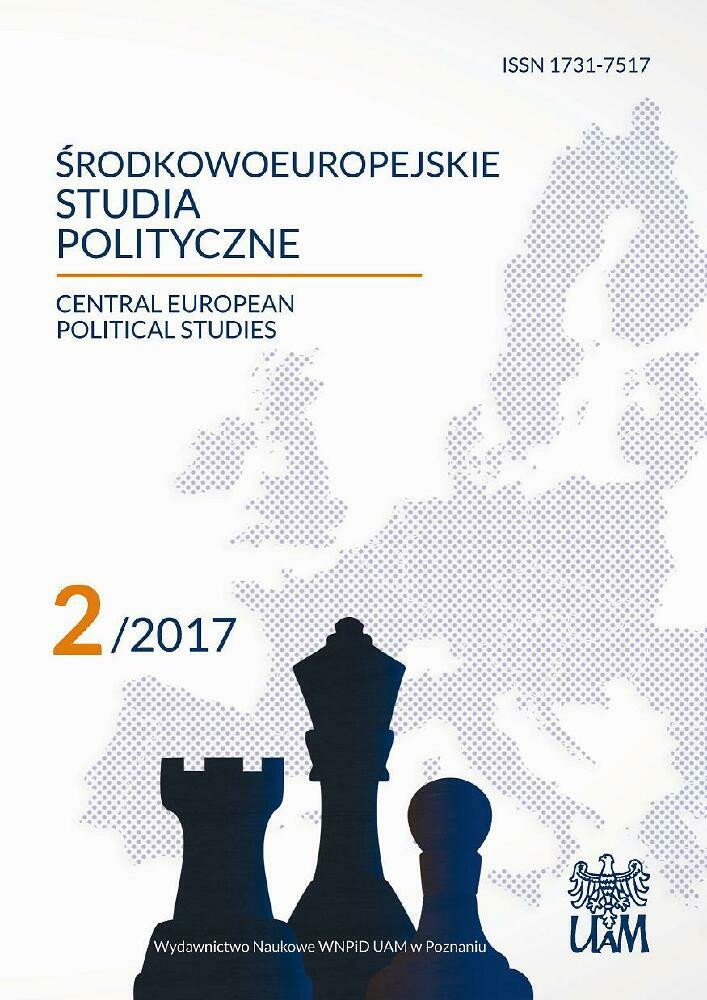Abstract
The goal of this paper is to present the evolution of populism in Poland using the examples of two political parties: the “Samoobrona” (“Self-Defense”) political party of Andrzej Lepper (a populist party which garnered most support in the first decade of the 21st century) and the “Kukiz ‘15” movement – the dark horse of the last Polish parliamentary elections. Both of these groups superbly illustrate the demagogy characteristic of populism, linked with an affirmation of the people (nation) which in turn would not be possible without the anti-establishment stance of the political leaders and the electorate. A comparison of these two examples allows us to monitor the transformations occurring in populist groups over the last few years, especially in the age where the Internet is employed as a vital means of communication. The paper presents the alternative conceptualizations of the idea of populism, and moves on to employ the N. Baar scheme (2009) and secondary and primary data (data obtained from the “Barometr Wyborczy” voting advisory application), and press releases to draft various types of correspondence between these two cases, which makes it possible to identify new, interesting characteristics of populism.
References
Barr R. (2009), Populists, Outsiders and Anti-Establishment Politics, “Party Politics”, vol. 15 (1), pp. 29–48.
Canovan M. (1981), Populism, Harcourt Brace Javonovich, New York.
Canovan M. (1999), Trust the People! Populism and the Two Faces of Democracy, “Political Studies”, vol. 47, pp. 2–16, doi: 10.1111/1467-9248.00184.
Cholova B., Kasprowicz D. (2010), Fertile Ground for Populism? Populist Parties in Poland and Bulgaria: Tentative Framework, Paper for the ECPR Graduate
Conference, 31 August, Dublin.
Derlich S. (2010), Populistów ethos zmanipulowany, Wydawnictwo Naukowe Uniwersytetu Mikołaja Kopernika, Toruń.
Dutkiewicz M. (2013), Populiści dobroczynności. Medialne informowanie o pomaganiu, Instytut Spraw Publicznych, Warszawa.
Kasprowicz D. (2013), Dwa oblicza populizmu, Instytut Obywatelski, www.instytutobywatelski.pl/14366.
MacRae D. (1969), Populism as an ideology, in: Populism – its meaning and national characteristics, eds. G. Lonescu, E. Gellner, Macmillan, London.
Markowski R. (ed.) (2004), Populizm a demokracja, Instytut Studiów Politycznych PAN, Warszawa.
Mény Y., Surel Y. (eds.) (2002), Democracies and the Populist Challenge, Palgrave, New York.
Mudde C. (2004), The Populist Zeitgeist, “Government and Opposition”, vol. 39 (4), pp. 541–563, doi: 10.1111/j.1477-7053.2004.00135.
Przyłęcki P. (2012), Populizm w polskiej polityce. Analiza dyskursu polityki, Wydawnictwo Sejmowe, Warszawa.
Stępińska A., Lipiński A., Hess A., Piontek D. (2017), Poland. A Fourth Wave of Populism?, in: Populist Political Communication in Europe, eds. T. Aalberg et al., Routledge, New York.
Szacki J. (2003), Pytania o populizm, “Krytyka polityczna”, vol. 4, pp. 28–34.
Taggart P. (2000), Populism, Open University Press, Buckingham PA.
Wysocka O. (2009), Populism in Poland: In/visible exclusion, in: In/visibility: Perspectives on Inclusion and Exclusion, ed. L. Freeman, Vienna: IWM Junior Visiting Fellows’ Conferences, vol. 26, Institut für die Wissenschaften vom Menschen, Austria, http://www.iwm.at/publications/5-junior-visiting-fellowsconferences/vol-xxvi/populism-in-poland.
Wysocka O. (2008), Populizm i Radio Maryja, “Znak”, vol. 640 (9), pp. 61–69.

